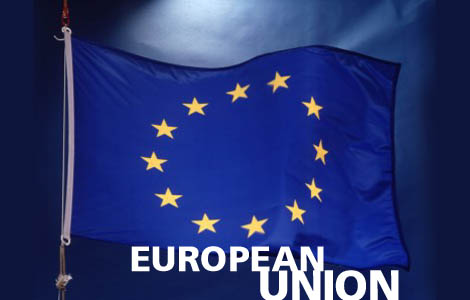Jordan, EU agree on joint mechanism for humanitarian aid in Gaza
 Amman - Jordan and the European Union on Tuesday reached agreement on setting up a "joint mechanism" for delivering humanitarian aid to the inhabitants of the Gaza Strip as the Israeli offensive into the salient continued its eleventh day.
Amman - Jordan and the European Union on Tuesday reached agreement on setting up a "joint mechanism" for delivering humanitarian aid to the inhabitants of the Gaza Strip as the Israeli offensive into the salient continued its eleventh day.
The two sides came up with arrangement during a meeting between King Abdullah II and a European troika delegation, which included Czech Foreign Minister Karel Schwarzenberg, the European High Representative for the Common Foreign and Security Policy Benita Ferrero-Waldner, and European Commissioner for External Relations and Neighbourhood Policy, Swedish Foreign Minister Carl Bildt.
The troika delegation was in the Middle East tour in a bid to arrange for a ceasefire in the Gaza Strip. The team has so far visited Egypt, Israel and the Palestinian Authority.
It was a separate mission from a four-day tour by French President Nicolas Sarkozy to the region. Sarkozy was Tuesday having a second round of talks in Cairo with Egyptian President Hosny Mubarak, after spending a day in Syria and Lebanon.
"A ceasefire may soon be established in Gaza," said Sarkozy, quoted on Lebanese radio before he left the country.
However, Israeli President Ehud Olmert, meeting with the EU troika, was not as optimistic, telling members of the EU delegation that the Israeli offensive would continue so long as Hamas fires rockets at Israel and smuggles weapons from Egypt into the Gaza Strip.
Olmert also rejected the EU's calls for a humanitarian respite for the fighting. Olmert spokesman Mark Regev said any lull "would play exactly into Hamas' hands and our goal has to remain a solution that would be sustainable and real."
But Jordan's King Abdullah said humanitarian aid was imperative.
"The monarch stressed the need during the meeting for a prompt move by the world community to stop the Israeli aggression and rescue the Palestinian people, who are suffering from a humanitarian catastrophe," the royal court statement said.
King Abdullah also "underlined the importance of a European Union role to push forward the peace negotiations after halting the aggression."
At a press conference later, Ferrero-Waldner said Abdullah and the EU delegation considered coordination between the two sides to ensure the delivery of humanitarian aid to be a "very important issue".
She said that the EU team was seeking the achievement of "two goals" - a humanitarian ceasefire and a method to alleviate the suffering of the civilian population in the Gaza Strip.
"A humanitarian ceasefire is still difficult, although we have to see what could be done," she added.
"We will not let the people (in Gaza) die. On the contrary, we have immediately and very strongly pushed the Israelis to open up the crossings," the EU official said.
"But, it is not only a matter of crossings, it is also a matter of distribution, of transport of basic things - food, water, fuel and medication to the population and this is that we want to do," she added.
She said that she had discussed with Israeli officials "the possibility to coordinate with the Israeli forces" to ensure the delivery of humanitarian materials to the Palestinian people in the Gaza Strip.
Ferrero-Waldner revealed that an EU official would be present at the Israeli Defence Ministry as of today for coordinating the dispatch of humanitarian aid to Gaza. (dpa)